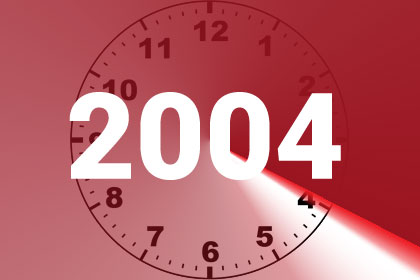 From our archives
From our archives
On February 6 Tonga set its clock back 20 years to the early 1980s, when the only newspapers available were the government newspaper, the Tonga Chronicle, and church newspapers.
Over those 20 years, a busy little print media industry has grown and by the Christmas of 2003 was providing Tonga with seven newspapers, (including three weeklies, one twice a week and four monthlies); and three quarterly magazines, along with numerous newsletters. All this was brought to an abrupt halt when the government began enforcing new restrictive media legislation at the beginning of 2004. What followed was a month when no newspapers could be published until government decided who should be given a licence to operate.
Booksellers of foreign books, newspapers and magazines also come under the same restrictions and they must be issued with a licence to import only the specific foreign books, newspapers and magazines that are approved by the Government. The Department of Communications required the bookshops to supply, free of charge, three copies of every publication to be considered for licensing. To date, the two bookshops in Nuku'alofa, the Dateline Bookshop and the Friendly Islands Bookshop, have still not been issued with licenses to distribute foreign newspapers, magazines and books.
On February 6 a committee that is responsible for the issuing of newspaper licenses led by the Registrar of Newspapers, 'Eseta Fusitu'a, called a Press Conference to announce the names of applicants that had been granted publishing licences and those who had been declined.
The only licences granted went to the government newspaper, Kalonikali Tonga; the Free Wesleyan Church of Tonga's, Tohi Fanongonongo; the Catholic Church's Taumu'a Lelei; the Tokaikolo Christian Fellowship's, 'Ofa Ki Tonga; the Tonga Chamber of Commerce newsletter, Lali Buzz; and the Tonga Star, a newspaper that is owned by an individual, Sangstar Saulala.
The competency of staff was a deciding factor according to 'Eseta, but when she was pressed to explain how she could judge the competency when some of the applicants had not even produced a newspaper, she insisted that she could tell. With regards to the hardship of the staff who were loosing their jobs because their newspapers were not given licenses to operate, 'Eseta had no comment to make.
The applicants that were denied licences were the long-standing Ko e Kele'a, and new companies Lali Media Ltd, Vula News Co. Ltd.
Other applicants were "being processed", according to the Prime Minister's Office.
The application from the 23-year-old Vava'u Press Ltd., the publisher of Matangi Tonga magazine, for a licence has been withheld because of its share-holding composition of 49% for Mary Fonua (an alien) and 51% for Pesi Fonua (a native). The new Media Operator's Act prohibits aliens from holding more than 20% of media companies and bookshops.



